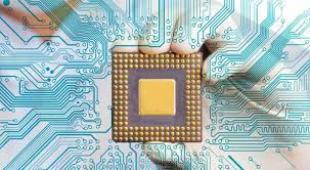The high volume of an endless data stream from the satellites to the ground stations and the continuous demand for a faster data computation speed will soon overrun the capacity of the cloud data servers to process the information. In CEF, we envision off-earth cloud servers by enabling artificial intelligence hardware accelerators that can sustain the extreme cosmic radiations in the space environment. We are co-integrating the computation and sensory functions of nanodevices to render adaptive, self-reconfigure, self-repair electronics. This technology will not only significantly reduce space deployment and maintenance costs but also avoid human-risk in space.
The demand for faster and larger capacity processing units is on the rise due to the advancements in AI algorithms, particularly in the neural networks sub-branch. While the state-of-the-art hardware is struggling to meet this demand for on-edge applications, space compliant computing systems have fallen even further behind as radiation hardening of the traditional technology introduces costs to performance, assembly, and manufacturability.
CEF researchers are working towards developing rad-hard memory architectures that can reduce these costs while enabling high computation power on-board that can be reliable for longer operation periods.



